Related Research Articles

Alton is a city on the Mississippi River in Madison County, Illinois, United States, about 18 miles (29 km) north of St. Louis, Missouri. The population was 25,676 at the 2020 census. It is a part of the River Bend area in the Metro-East region of the Greater St. Louis metropolitan area. It is famous for its limestone bluffs along the river north of the city, as the former location of the state penitentiary, and for its role preceding and during the American Civil War. It was the site of the last Abraham Lincoln and Stephen Douglas debate in October 1858. The former state penitentiary in Alton was used during the Civil War to hold up to 12,000 Confederate prisoners of war.

Albion is a town in Kennebec County, Maine, United States. The population was 2,006 at the 2020 census.
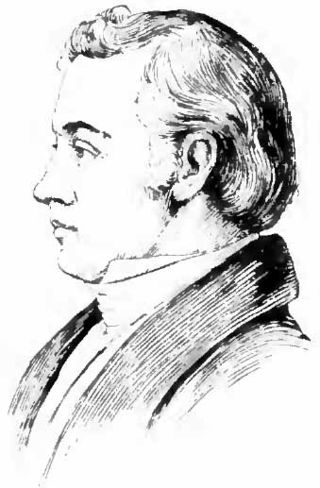
Elijah Parish Lovejoy was an American Presbyterian minister, journalist, newspaper editor, and abolitionist. Following his murder by a mob, he became a martyr to the abolitionist cause opposing slavery in the United States. He was also hailed as a defender of free speech and freedom of the press.
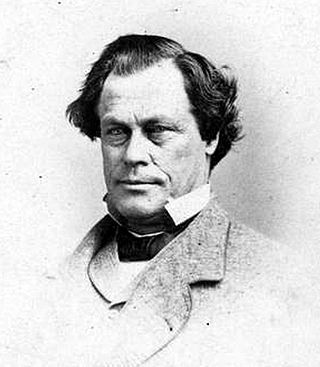
Owen Lovejoy was an American lawyer, Congregational minister, abolitionist, and Republican congressman from Illinois. He was also a "conductor" on the Underground Railroad. After his brother Elijah Lovejoy was murdered in November 1837 by pro-slavery forces, Owen, a friend of Abraham Lincoln, became a leader of abolitionists in Illinois, condemning slavery and assisting runaway slaves in escaping to freedom.
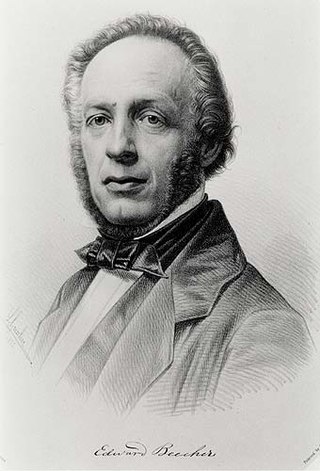
Edward Beecher D.D. was an American theologian, the son of Lyman Beecher and the brother of Harriet Beecher Stowe and Henry Ward Beecher.
Thomas Galt was an American Presbyterian minister and abolitionist who organized two Presbyterian churches in Sangamon County, Illinois. He was Vice-President of the Illinois Anti-Slavery Society and a conductor of the Underground Railroad.

Winthrop Sargent Gilman was head of the banking house of Gilman, Son & Co. in New York City. Born and raised in Ohio, he had parents and ancestors from New England. Part of the family had already established the banking business in New York. Gilman developed as a businessman in the northwest region with wide interests.

John Marshall Krum (1810–1883) was a lawyer, jurist, and mayor. He was the 11th mayor of St. Louis, Missouri and the first mayor of Alton, Illinois. In 1860, he was the chairman of the Credentials Committee at the Democratic National Convention held in Charleston, South Carolina.
Alton Community Unit School District #11 in Madison County, Illinois is a public school district consisting of seven elementary schools, one high school, one middle school, an early childhood center, and an alternative education school. They have a high school football team that play frequent games.
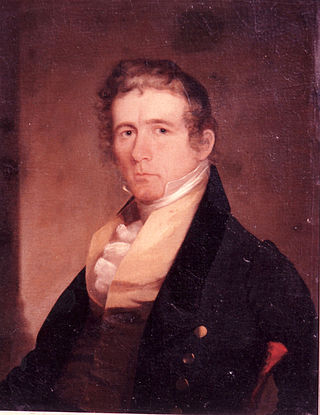
George Champlin Sibley was an American explorer, soldier, Indian agent, politician.

The Alton Observer (1837) was an abolitionist newspaper established in Alton, Illinois, by the journalist and newspaper editor Elijah Lovejoy after he was forced to flee St. Louis, Missouri. Lovejoy left St. Louis, where he edited the St. Louis Observer, after his printing press was destroyed for the third time.

Lovejoy Library at Southern Illinois University Edwardsville opened in 1965 and is located on the Stratton Quadrangle of the SIUE campus. The library was named for Elijah Parish Lovejoy, American Presbyterian minister, journalist and newspaper editor who, in 1837, was murdered by a mob in nearby Alton for his abolitionist views.

The Elijah P. Lovejoy Monument, also known as the Elijah Lovejoy Monument, Elijah Parrish Lovejoy Shaft, Lovejoy Monument, and Lovejoy State Memorial, is a memorial in Alton, Illinois to Elijah P. Lovejoy, an advocate of free speech and the abolition of slavery.

The lynching of Francis McIntosh was the killing of a free man of color, a boatman, by a white mob after he was arrested in St. Louis, Missouri, on April 28, 1836. He had fatally stabbed one policeman and injured a second.

John Glanville Gill was an American Unitarian minister, scholar in history, and civil rights activist. While working on research for his dissertation about Elijah Parish Lovejoy, an editor and abolitionist, he lived and worked in Alton, Illinois in the mid-1940s. There he worked with other ministers to try to integrate public schools, raise awareness about racial discrimination, and end segregation practices.
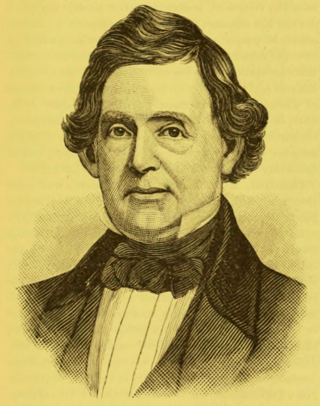
Benjamin Godfrey was an American merchant and philanthropist from Massachusetts who is known for his work in the Illinois region. Running away to Ireland at a young age, Godfrey worked on ships in his early life, eventually commanding his own. This vessel was wrecked off the coast of Mexico, but Godfrey found wealth in a trading house in Matamoros, Tamaulipas. However, he was robbed and returned to the U.S. penniless.

Thomas Dimmock (1830-1909) was an American journalist, editorial writer, book reviewer, critic and lecturer. He was responsible for restoring the Alton, Illinois, grave of free-press martyr Elijah Parish Lovejoy, who was shot and killed by a pro-slavery mob in 1837.
Joseph Cammett Lovejoy (1805–1871) was a clergyman, activist, and author. He was an abolitionist, and was also involved in the debate over liquor laws. His siblings included Elijah Parish Lovejoy and Owen Lovejoy (1811–1864). He wrote Memoir of Charles T. Torrey about Charles T. Torrey. who died in a Maryland penitentiary after being sentenced for aiding African Americans trying to escape slavery on the Underground Railroad and co-wrote with his brother Owen the memoir of their murdered brother Elijah.

Francis Butter Murdoch was an American attorney and newspaper publisher. As a lawyer, he practiced law in Pennsylvania, Michigan, Illinois and Missouri, and initiated freedom suits for Dred Scott and Harriet Robinson Scott in 1846. Between 1840 and 1847, Murdoch filed nearly one-third of all freedom suits in St. Louis, and secured freedom for many of his clients who had been enslaved, including Polly Berry and her daughter, Lucy A. Delaney. Before that, Murdoch was the city attorney in Alton, Illinois, where he unsuccessfully prosecuted rioters who killed Elijah Parish Lovejoy, an anti-slavery newspaper publisher, in 1837.
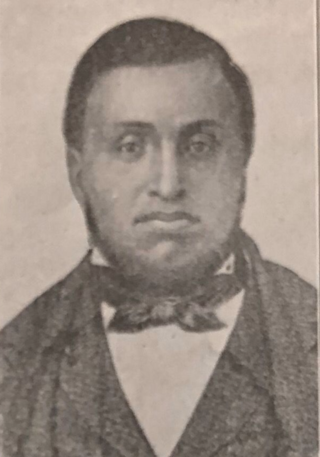
John R. Anderson, also known as J. Richard Anderson, was an American minister from St. Louis, Missouri, who fought against slavery and for education for African Americans. As a boy, he was an indentured servant, who attained his freedom at the age of 12. Anderson worked as a typesetter for the Missouri Republican and for Elijah Parish Lovejoy's anti-slavery newspaper, the Alton Observer. He founded the Antioch Baptist Church in Brooklyn, Illinois and then returned to St. Louis where he was a co-founder and the second pastor of the Central Baptist Church. He served the church until his death in 1863.
References
- Vaughn, Stephen L. (editor) Encyclopedia of American Journalism (Routledge, 2009) p. 4